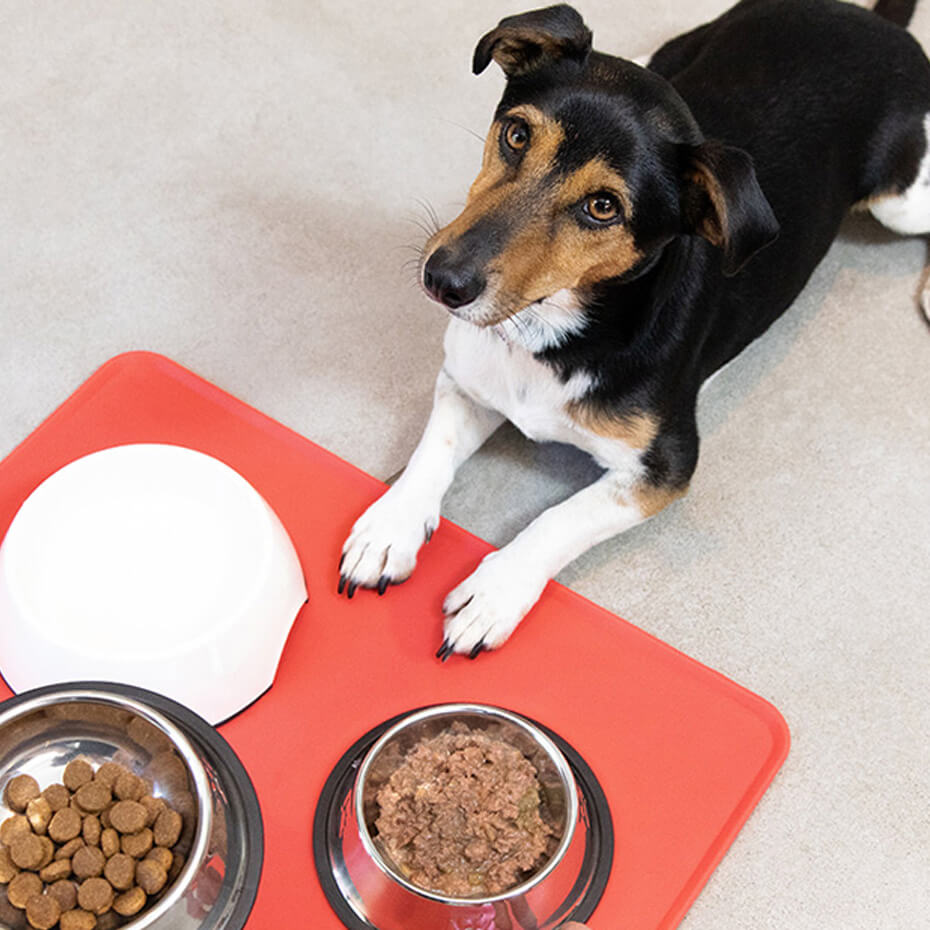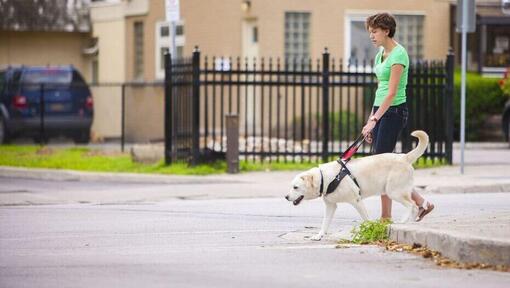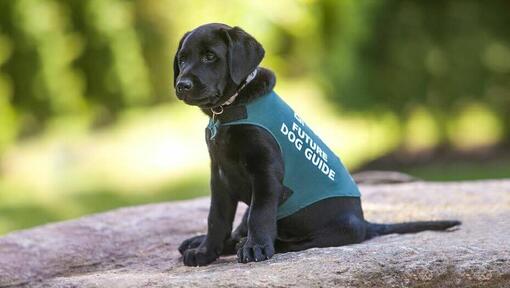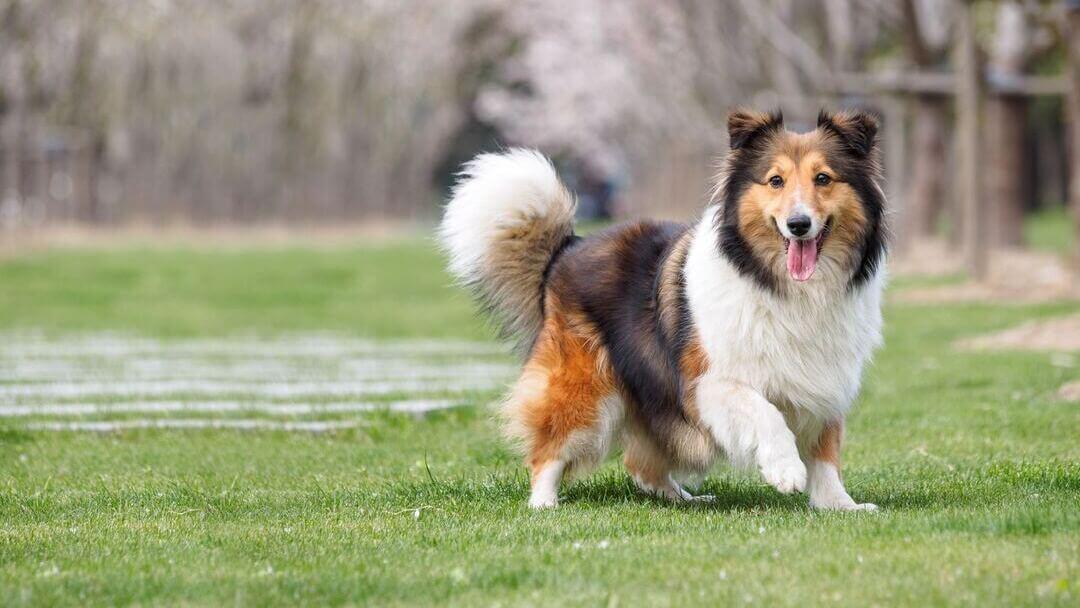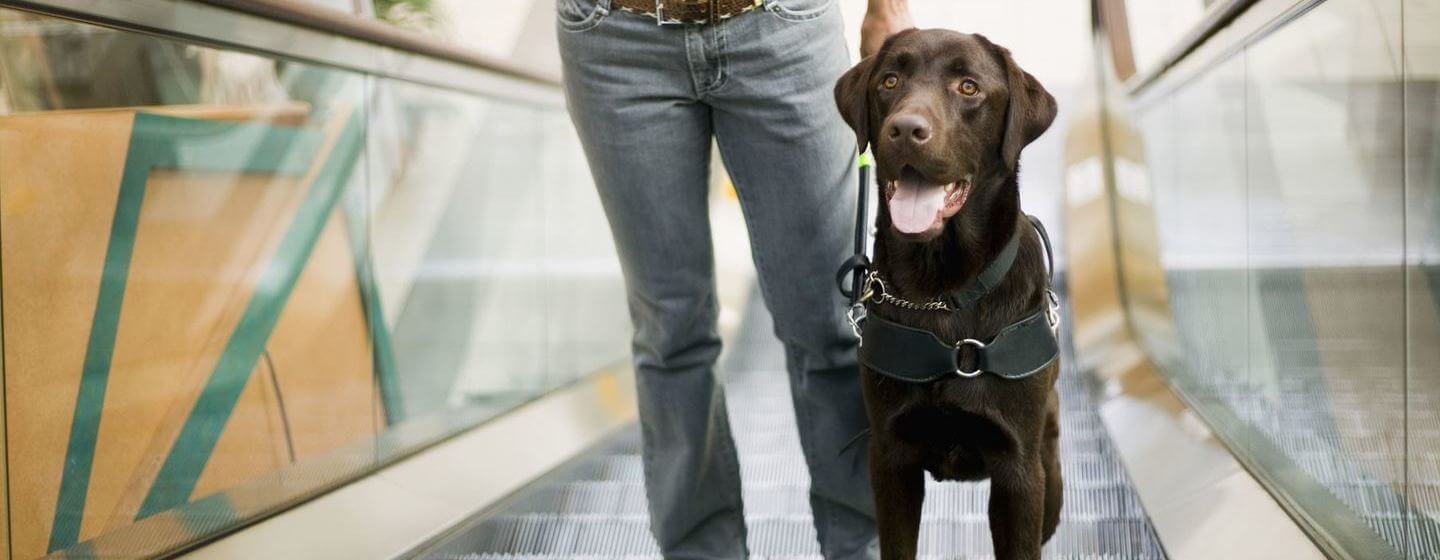
Dogs are forever loyal to their people and always willing to help us in times of need. This fierce loyalty and love to please means they make great assistance dogs for those with disabilities, impairments or mental health disorders. Read our guide to find out more about the different types of service dogs and the incredible jobs they do.
Dogs are truly amazing. They're our faithful companions and provide us with companionship and love, all throughout their lives. This impressive loyalty and love of humans also means that they make wonderful aids to those with special needs and disabilities, as they're always willing to lend a helping paw to those who need it.
Service and assistance dogs are often a lifeline to their handlers, offering more freedom and a boost to overall wellbeing. Keep reading to find out more about the types of service dogs and the amazing jobs they do.
Guide dogs
Guide dogs are amongst the most common assistance dogs you'll encounter. Specially trained to support blind and visually impaired people, guide dogs have been used for this purpose for centuries and there's much debate about where the practice of training them began.
Typically, Labradors and Golden Retrievers are favoured for this job as they're smart, lovable, highly trainable and their kindly appearance makes them seem less threatening to those in public who may be fearful of dogs. What's more, Labradors possess soft mouths, making them excellent at picking things up for their handlers.
Fun fact: guide dogs are so intelligent that they know when to actively disobey commands and act in the best interests of their handler!
Hearing dogs
Just as dogs can help the visually impaired, they can also assist those with hearing loss. These incredible service dogs can inform their owners about smoke alarms, doorbells, oven timers and even crying babies! When they hear the noise, the assistance dog is trained to place a paw upon their handler, then lead them either towards or away from the noise, depending on the cause.
Once again, Labradors and Golden Retrievers are very popular choices for this type of service dog, but recently other breeds such as Poodles and Miniature Spaniels have been used too.
Seizure alert and response dogs
There are some dogs which can be trained to recognise when their handler is about to have a seizure and can call for help and position themselves to protect them during the episode. In fact, larger support dogs can even move their owners away if they're in a dangerous location such as a road. As dogs are so in tune to our emotions, it's thought that they can sense the behaviour change prior to a seizure and can be taught to detect and respond accordingly. However, there have been reports of some owners saying that their pet dogs have predicted a seizure coming, with no training at all!
Diabetic alert dogs
It's no secret that our dogs have super powered noses, but did you know that they can pick up scent changes in your blood glucose levels? Diabetic alert dogs are trained to pick up on these scents and then alert their owners when their blood sugar is too high or low, allowing them to act accordingly as soon as possible. Some highly trained service dogs can even be taught to alert others in the household or set off an alarm when their owner is in urgent need of medical attention.
Allergy detection dogs
The talents of dogs' noses don't just stop there either - they can also sniff out the smallest traces of allergens in the environment and let their owner know! Allergy detection dogs are trained to alert their handler if they smell anything that could cause them to suffer from a potential reaction, ensuring that they avoid contact with it. These assistance dogs are very popular with children as they can help to give them more independence in their day to day lives, whilst also keeping them safe from harmful allergens.
Mobility assistance dogs
Mobility assistance dogs offer an invaluable service to those with mobility impairments. They can assist with tasks including everything from opening doors, turning on lights, pressing buttons and can also be taught to fetch items for their handlers.
Larger breeds such as Labradors, Golden Retrievers, Samoyeds and Rough Collies tend to be more favoured for these jobs as they need to be strong enough to assist their handlers, potentially provide balance and support their weight.
Autism service dogs
People with autism can have difficulty navigating social settings and often, an autism service dog can be a great help and mostly importantly, a great friend. These support dogs can help with overall confidence, whilst also providing emotional support, stress relief and help their handlers connect with people. Children with autism can also be more likely to run away or wander off and an autism service dog can protect, keep track of them and alert parents when their child is in a dangerous situation.
Psychiatric service dogs
Psychiatric service dogs can provide emotional support for those suffering from mental health disorders. Typically, those with PTSD, anxiety or depression benefit from this type of service dog as they can help to make them feel safer, whilst also detecting oncoming panic or anxiety attacks or flashbacks.
Psychiatric service dogs provide their owners with some much-needed peace of mind and can be trained to ensure locations are safe prior to entering, such as the home, by going in first and then turning on lights by operating foot pedals. What's more, they can also offer their handlers more personal space by creating a barrier between them and other individuals.
Therapy dogs
Therapy dogs are very different to emotional support and service dogs as they're not trained to live with a specific handler and they're also not given the same permissions to access public spaces like other assistance dogs. Therapy dogs are trained to go out to locations such as hospitals, hospices, schools, nursing homes and mental health facilities and offer comfort and companionship. Lots of different dog types can be considered for this job, they just need to possess the right temperament. All therapy dogs must be calm, even in unfamiliar, busy environments and when surrounded by loud noises and movements. Additionally, due to the fact that a lot of people will want to pet them, they'll need to be fine with being handled by a variety of people!
That's our guide to the types of service dogs and what they do! Want to find out more about how our four-legged friends are helping keep us safe? Read our article on military and police dogs, next!


